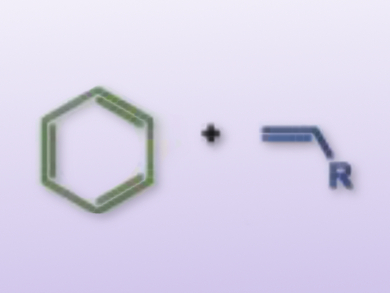The hydroarylation of olefins is a synthetic method for the generation of C–C bonds, opening routes for the synthesis of aromatic molecules such as ethylbenzene and cumene. The acids HF, H2SO4, and AlCl3 are examples of suitable catalysts for the production of these chemicals. However, the need for more selective, safe, environmentally friendly, and sustainable processes has caused a search for alternative catalysts.
Thomas Braun, Erhard Kemnitz, and colleagues, Humboldt University of Berlin, Germany, have investigated the use of aluminium chlorofluoride (ACF, AlClxF3-x, x = 0.05–0.25) for hydroarylation reactions. The extraordinary Lewis acid strength of ACF, a heterogeneous nanoscopic catalyst, promotes the formation of carbocationic-like species from fluorinated and non-fluorinated alkenes. This enhances the electrophilic character of the alkenes and allows the hydroarylation of a variety of alkenes under mild conditions, even at room temperature.
The results demonstrate the potential of ACF as a heterogeneous catalyst for the synthesis of fluorinated chemical building blocks, which are important in the pharmaceutical, agrochemical, and materials sciences.
- Heterogeneous Catalytic Hydroarylation of Olefins at a Nanoscopic Aluminum Chlorofluoride ,
Beatriz Calvo, Jan Wuttke, Thomas Braun, Erhard Kemnitz,
ChemCatChem 2016.
DOI: 10.1002/cctc.201600257




